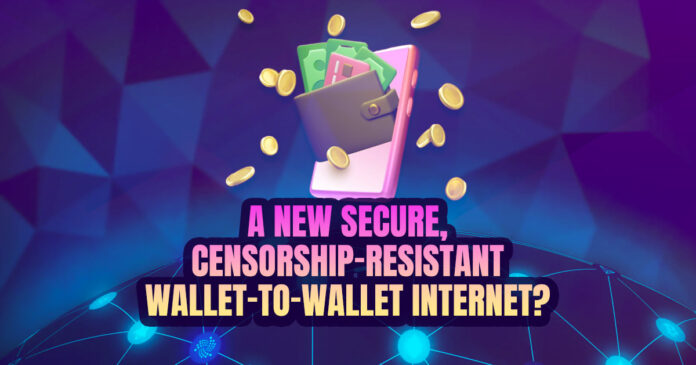Today, we’re taking a deep dive into CoNET. It’s a project that aims to build a privacy-based, wallet-to-wallet internet. Now, what does this mean? And how does CoNET plan to do this? Let’s find out more below.
Before we begin, let’s start off by taking a look at what CoNET is.
What Is CoNET?
CoNET is a crypto project that aims to re-invent and start a brand new “internet”. To do this, CoNET uses the unique technology from the Layer Minus protocol.
In short, it uses a new censorship-resistant form of data transfer. This data transfer method uses crypto wallet addresses, instead of IP addresses. This enables a wallet-to-wallet internet. In turn, CoNET allows all transfers to be fully private and accessible to all.
Make sure the Internet Revolution occurs within the @CoNET_Network 🌐
🎦Watch the trailer to discover the CoNET Vision👇#CoNET #DePIN #Privacy #Web3 #Blast_L2 #BlastEcosystem #Bitcoin pic.twitter.com/cpj6E8T0QA
— CoNET (@CoNET_Network) February 13, 2024
Benefits of Privacy
Ok. So now, you understand what CoNET does to enable internet privacy. But why do we need privacy? Well, the internet that we use today can reach blazing speeds. Yet, that comes with a downside. Our daily internet use is being subjected to:
- Surveillance. All our computer activity and data stored can easily be obtained by third parties. For instance, governments, companies, or even hackers.
- Communication Filters. Third parties can restrict the access of internet users like you and me to online content.
- Big Data Collection. Big tech companies harvest your data for their profit.
To combat these, CoNET believes that its wallet-to-wallet internet is the solution.
Low Barriers to Entry for Users
So, how does CoNET plan to onboard users like you and me? The answer is with a dApp. Currently, CoNET is working to launch said dApp on the Blast Layer 2 (L2) network.
With this dApp, CoNET makes it easy for users to access the wallet-to-wallet internet. Its User Interface (UI) emphasizes aesthetics and user experience. And, it’ll also hide the technical aspects behind a simplified UI.
As a user, all you’re doing is just connecting to CoNET’s proxy. Then, it replaces your IP address with a wallet address. That’s it! Now just hop on over to the usual browser that you use (E.G. Chrome, Firefox). You’re now connected to a new, private internet.
Engaging Developers
Now, it isn’t all about users too. Without developers, you can’t build a wallet-to-wallet internet for users. The CoNET team recognizes this. Hence, they provide an in-built development package for builders. This package provides:
- A single code base.
- Universal device capability.
Both of which aid developers to build in the Web 3 space.
The $CNTP Token
On the CoNET network, users can do the following with its native $CNTP token:
- Pay for gas and transactions.
- Earn rewards.
- Participate in staking and governance.
- Run nodes and so forth.
Here, we see that CoNET plans to include many use cases for its token.
Conclusion
Today, CoNET is still in its development phase. Recently, it just launched its testnet on the Blast L2. To promote its network, CoNET has also launched an airdrop campaign! If you’re interested, you can check it out in the tweet below.
@CoNET_Network 𝗖𝗼𝗻𝗳𝗶𝗿𝗺𝗲𝗱 𝗔𝗶𝗿𝗱𝗿𝗼𝗽
The Depin story has been getting a lot of attention lately. Don't miss out on the confirmed airdrop happening in the narrative!
⏳ 2mins
💰 $0
We all worry about our personal info going out, right? Privacy is crucial,… pic.twitter.com/O7NLf5BpSQ
— JacoDefi 👤 ₿ (@jaco_defi) February 2, 2024
All in all, CoNET looks set to achieve its goals for a wallet-to-wallet internet. It’s got the technology, and it’s making the right moves with users and developers. However, the project is still very young. With that, we’ll be keeping a close eye on this project’s development.
Disclaimer
The information discussed by Altcoin Buzz is not financial advice. This is for educational, entertainment, and informational purposes only. Any information or strategies are thoughts and opinions relevant to the accepted levels of risk tolerance of the writer/reviewers, and their risk tolerance may be different from yours.
We are not responsible for any losses that you may incur as a result of any investments directly or indirectly related to the information provided. Bitcoin and other cryptocurrencies are high-risk investments, so please do your due diligence.
Copyright Altcoin Buzz Pte Ltd.





























